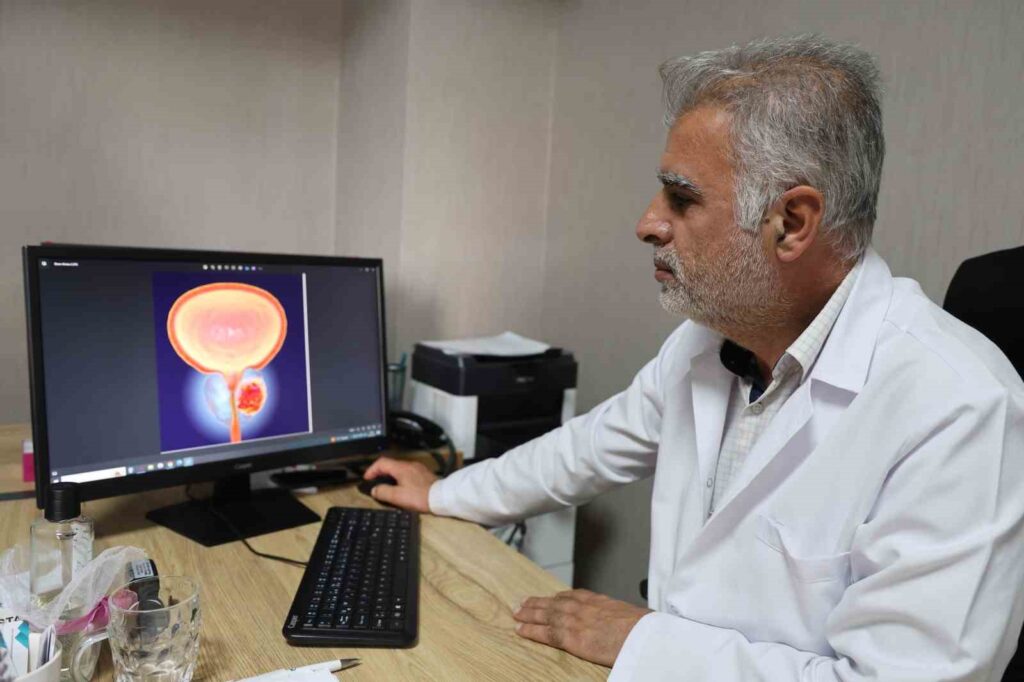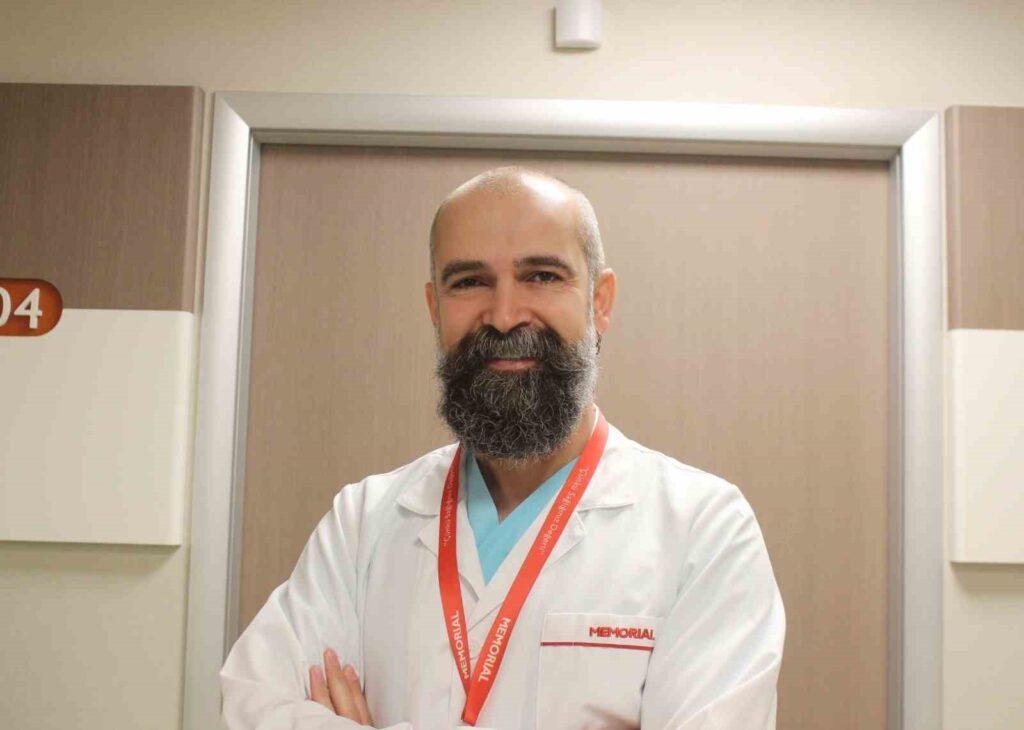Urology Specialist Op. Dr. Yüzgeç: ‘There is no medical treatment for prostate disease, only relief can be provided with medication.’
Urology Specialist Op. Dr. Veysel Yüzgeç stated that there is no cure for prostate disease, only a treatment for relieving symptoms with medication, and that a drug that can destroy prostate tissue has not yet been found. He is on duty at Elazığ Medilines Hospital …

Urology Specialist Op. Dr. Veysel Yüzgeç stated that there is no cure for prostate disease, and that there is only a medication treatment for relief, emphasizing that a drug that would eliminate prostate tissue has not yet been found.
Urology Specialist Op. Dr. Veysel Yüzgeç, who works at Elazığ Medilines Hospital, made statements regarding prostate disease seen in men. He emphasized that prostate disease should not be taken lightly and noted that prostate patients experience more difficulties in winter compared to summer, adding that men over 40 should have a medical check-up once a year. Dr. Yüzgeç, who works at Elazığ Medilines Hospital, conveyed that prostate disease concerns men and stated, “The prostate is an auxiliary reproductive organ that is present even in newborn male infants. It begins to grow gradually after the age of 40. When it enlarges, the patient can no longer urinate as healthily as before. They have to go to the bathroom more frequently, and the urine flow may be interrupted or split, and they may not be able to project their urine forward. They may need to get up several times at night to urinate until they fully empty their bladder. Especially in winter months, in cold weather, these symptoms become more pronounced. While these patients feel more comfortable in summer, they suffer more in winter. There is no treatment for prostate disease, there is only a medication treatment for relief. Since prostate tissue is connective tissue, a drug that can eliminate it has not yet been found. If the prostate tissue grows significantly, it needs to be operated on surgically, endoscopically, or laparoscopically. The World Health Organization recommends that men undergo urological examination and screening once a year after a certain age (40). After necessary tests are taken, relieving medications may be given according to the degree of growth and symptoms. Prostate tissue does not always grow benignly. Sometimes we encounter prostate cancers. Examination, urinary ultrasound, and blood tests (PSA) are important in diagnosis. For patients suspected of prostate cancer, we first apply a treatment and then monitor them. When our patient returns after 15 days, we request tests again. If the results are still concerning, we then proceed to a prostate-specific dynamic MRI examination. The results are graded from 1 to 4. While 1 and 2 are considered normal, we proceed to biopsy for grades 3 and 4. For our patients diagnosed with prostate cancer, we stage the cancer and apply a different surgical method if the cancer has not spread outside the prostate (total prostatectomy).”
“Prostate is not a disease to be taken lightly”
Explaining that prostate disease is not a condition to be overlooked, Dr. Yüzgeç stated, “If the patient is not operated on in time, the bladder and later the kidneys may be adversely affected and may be damaged. Those who cannot urinate comfortably may find that their bladder gradually loses its normal anatomical structure and begins to deteriorate. The pressure that does not reflect downward may reflect upward towards the kidneys, potentially causing damage to the kidneys and even leading to kidney failure. There is no joke about this disease. If a man has passed the age of 40 and is frequently urinating, cannot fully empty his bladder, has a thin stream, and cannot project it forward, it is strongly recommended to see a urology specialist for examination as soon as possible. Prostate disease cannot be eliminated with medication; medications only postpone the problem for a while. The definitive treatment for prostate disease is surgical. It is also not appropriate to operate on every patient. Even while our patients are receiving medical treatment, their prostates continue to grow. A relieving medication may no longer be effective after a while. As the medication does not work, complaints progressively increase. At this stage, surgery needs to be introduced. In cases of prostate cancer, after the disease is confirmed with tests, MRIs, and biopsies, staging is done, and if the disease has not spread outside the prostate, treatment is performed with endoscopic, laparoscopic, or robotic surgical procedures.”







